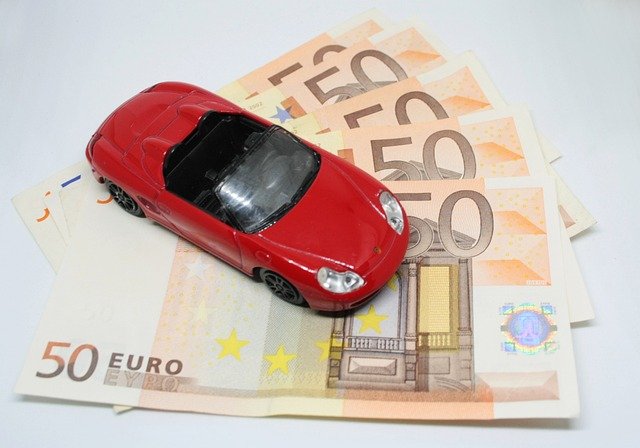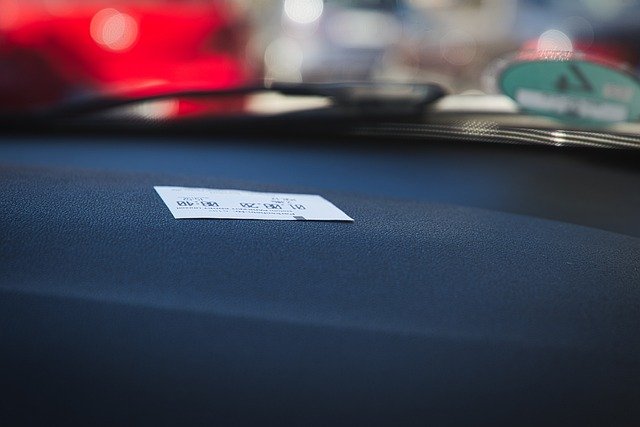Exploring Police Impound Auctions: Insights for Affordable Vehicle Purchases
Exploring online police impound auctions can reveal a range of budget-conscious vehicle options many overlook. This guide outlines how individuals approach these auctions for access to forfeited or unclaimed cars, often priced below traditional market listings. By understanding auction terms, vehicle histories, and inspection guidelines, people navigate smarter purchase decisions. Learn how auctions typically operate and what factors others consider when evaluating listings and finalizing ownership.

What Are Police Impound Auctions and How Do They Work?
Police impound auctions are sales events where law enforcement agencies sell vehicles they’ve seized during criminal investigations, collected from abandoned properties, or impounded due to legal violations. When owners fail to claim these vehicles or pay required fees within a specified timeframe, the vehicles become eligible for public auction. These auctions may be conducted in person at police facilities, government compounds, or increasingly through online platforms that expand access to bidders nationwide.
The auction process typically begins with a preview period where interested buyers can inspect available vehicles. During the actual auction, vehicles are sold to the highest bidder, often starting at remarkably low minimum bids compared to traditional dealerships. Payment is usually required immediately or within 24-48 hours of winning a bid, with most auctions accepting cash, certified checks, or specific electronic payment methods.
Why Are Vehicles Available at Government Car Auctions Online?
Vehicles end up in government and police auctions through various channels. Many are seized during criminal investigations, particularly those involving drug trafficking, fraud, or other illegal activities where assets are confiscated. Others are abandoned vehicles that remain unclaimed by their owners after being towed. Some are surplus government fleet vehicles being cycled out of service, while others may be repossessed due to failure to pay taxes or loans.
The digital transformation of this marketplace has created a booming sector for government car auctions online, making these opportunities accessible to a much wider audience than traditional in-person events. Online platforms now host auctions from multiple government agencies, police departments, and municipalities, creating a consolidated marketplace for seized and surplus vehicles.
What Types of Vehicles Can You Find at Seized Vehicle Sales?
The inventory at police auctions varies tremendously, ranging from budget-friendly sedans to luxury vehicles and even specialized equipment. Common finds include:
-
Everyday commuter cars (sedans, SUVs, minivans)
-
Luxury vehicles seized in criminal proceedings
-
Motorcycles and recreational vehicles
-
Commercial trucks and vans
-
Occasional exotic or rare vehicles
-
Decommissioned police cruisers and government fleet vehicles
The condition of these vehicles spans the spectrum from nearly new to requiring significant repairs. Some seized luxury vehicles may have been well-maintained by previous owners before confiscation, while abandoned vehicles might need substantial work. This variety contributes to the appeal of seized vehicle sales for bargain hunters, mechanics, and flippers looking to restore and resell vehicles.
How Can You Buy Cars From Police Auctions Effectively?
Successfully purchasing from police auctions requires preparation and strategy. First, research upcoming auctions in your area by checking government websites, contacting local law enforcement agencies, or registering with online auction platforms specializing in government sales. Many jurisdictions publish auction schedules weeks in advance.
Before bidding, thoroughly inspect any vehicle of interest during the designated preview period. Unlike traditional car sales, police auction vehicles are typically sold “as-is” with limited or no warranties. Bringing a mechanic or knowledgeable friend can help identify potential issues that might not be immediately apparent.
Set a firm budget before bidding begins and factor in additional costs beyond the purchase price, including any auction fees, taxes, transportation, and potential repairs. When bidding, maintain discipline—competitive auctions can trigger emotional responses that lead to overbidding. Remember that your goal is finding value, not winning at any cost.
What Are the Hidden Advantages and Risks of Cheap Impounded Vehicles?
The primary advantage of purchasing cheap impounded vehicles is the potential for significant savings. Vehicles at police auctions often sell for 30-70% below retail value, making them attractive options for budget-conscious buyers. Additionally, these auctions sometimes offer rare finds that might be difficult to source elsewhere, including specialized equipment or limited-edition models.
However, buyers should be aware of several risks. Most impounded vehicles are sold without warranties or guarantees, transferring all risk to the buyer. Vehicle histories may be incomplete or unavailable, potentially hiding accident damage or mechanical issues. Some vehicles may have title issues that complicate registration, especially those seized in criminal proceedings.
Another consideration is the competitive nature of these auctions. As more buyers discover these opportunities, particularly through online platforms, competition has increased, potentially driving up prices at popular auctions. First-time participants may find themselves outbid by experienced dealers or flippers who attend these auctions regularly.
What Costs and Considerations Should You Budget For?
When planning to buy from police auctions, understanding the full cost picture is essential for making informed decisions.
| Cost Factor | Typical Range | Notes |
|---|---|---|
| Vehicle Purchase Price | $500 - $10,000+ | Varies widely by vehicle type and condition |
| Buyer’s Premium | 5% - 15% of winning bid | Added by auction houses as service fee |
| Registration & Title Transfer | $25 - $250 | Varies by state/location |
| Transportation | $100 - $500 | Towing or driving from auction site |
| Initial Repairs | $0 - $2,500+ | Higher for vehicles sold “as-is” |
| Storage Fees | $25 - $50 daily | If vehicle isn’t removed promptly |
Prices, rates, or cost estimates mentioned in this article are based on the latest available information but may change over time. Independent research is advised before making financial decisions.
Beyond these direct costs, buyers should budget for potential mechanical issues that may arise after purchase. While some buy cars from police auctions with mechanical knowledge and repair capabilities, others might need to factor in professional diagnostic services and repair costs. Additionally, some states charge additional fees for registering vehicles that previously had salvage titles or were impounded, which can affect the overall value proposition.
Conclusion
Police impound auctions offer a unique opportunity to purchase vehicles at potentially significant discounts, making them attractive options for budget-conscious buyers. However, success in this marketplace requires research, preparation, and a clear understanding of the risks involved. By approaching these auctions with due diligence and realistic expectations, buyers can navigate potential pitfalls and find remarkable values on vehicles that might otherwise be unattainable through traditional purchasing channels.




